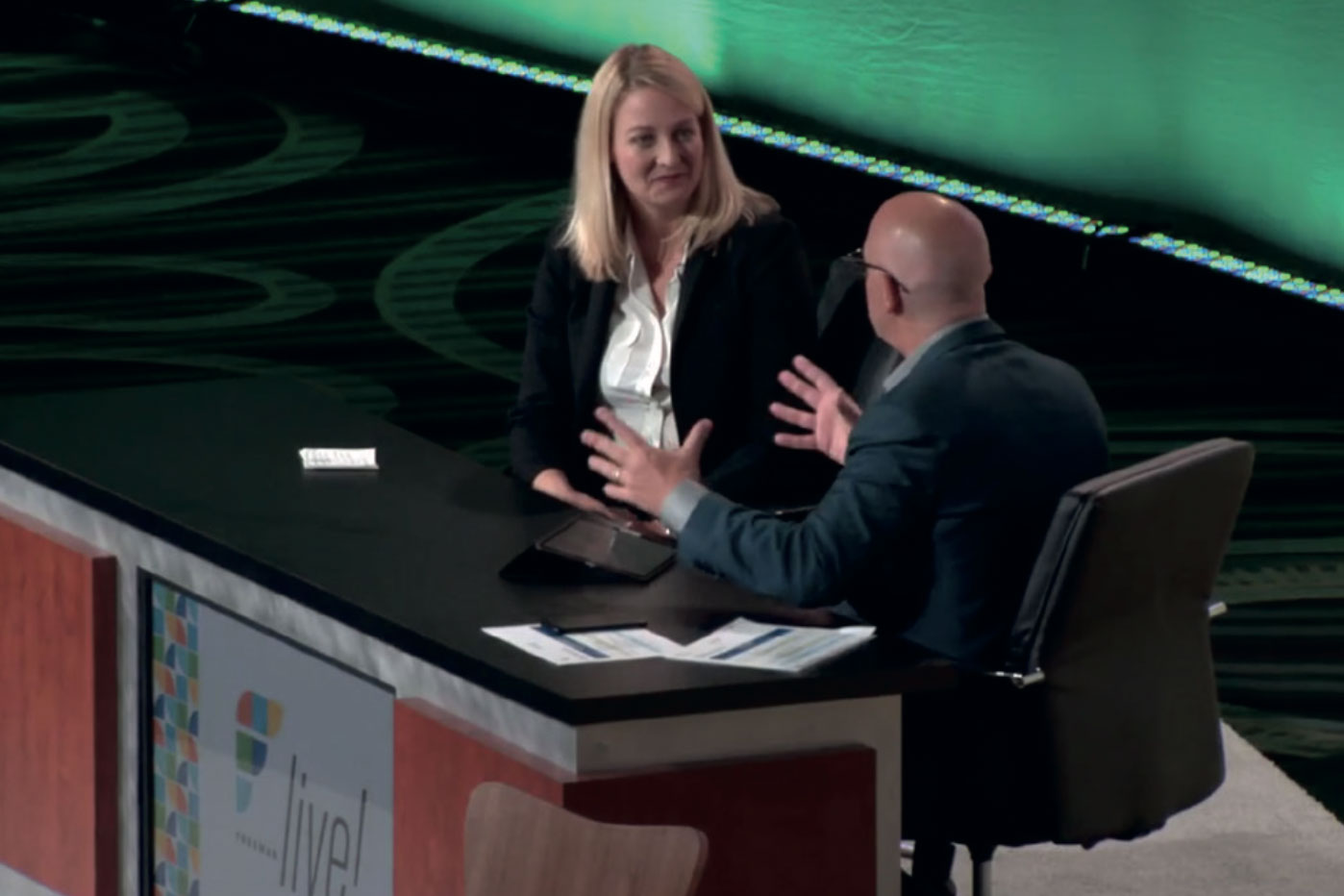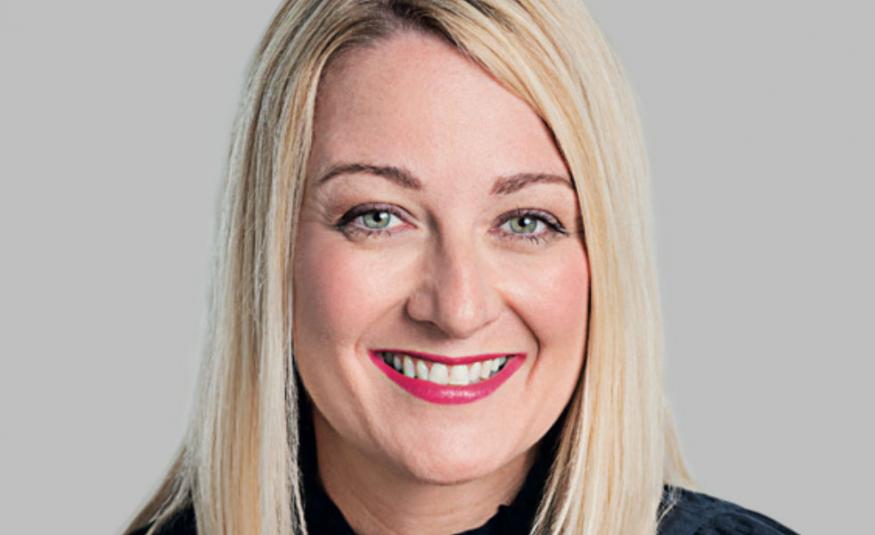Janet Dell, new president & COO Freeman, talks about her first months in the job and shares her future vision and strategic thinking.
You spoke about the industry facing a ‘reinvention’ moment when you first took up the reins at Freeman last November. Is it evolution or, with the extra challenges provided by Covid, has a more radical approach been called for?
While this has been one of the most difficult times for our industry, one of the bright spots for me has been the resilience of our customers and our Freeman team. In the past 10 months, we have had to adapt our business to meet the current demands of our customers based on a constantly changing environment.
Through this experience, we are redefining the future of live events. No matter the method, our focus is on creating a great customer experience. Right now, that is virtual in most markets, while in other markets we are moving to hybrid models. Moving forward, we expect to see event strategies evolve, leveraging all that we have learned from virtual events combined with the unparalleled strength of in-person events.
Freeman’s experience managing virtual, hybrid, and physical events across different geographies has given us a unique POV on the path forward. As we get back to in-person events, Freeman will be introducing new ways to create moments that matter.
You also mentioned redefining live and working with partners and customers to reach their goals - with strategy, digital, data, and design being priority tasks. How are you approaching that?
The world as we knew it changed, and so has our approach. We are experimenting, growing, and challenging the way we’ve always done things to find the right solutions.
Insights gained over the past year’s challenges help us to reimagine the future. For example, we know education can be a really great online experience, which now allows us to rethink if/how education happens at face-to-face events. Networking and engagement online have not come close to the experience you get when you are at a live event. So instead of just replicating those things to an online environment, we are experimenting with new approaches like broadcast and gamification.
At Freeman, we can do this because we have built out areas of expertise in digital, strategy, marketing, and design to complement our depth of knowledge in event operations and production. Combined, we can take the best learnings to craft and execute events and expos across any media format.

Is it difficult to launch new strategies at a time when the events industry has been losing staff and retrenching?
While it was very difficult to furlough team members and reduce our operating model, it was necessary based on current market dynamics and forced us to focus on those things that mattered most. Internally, it became an organising principle so that everyone was aligned and working towards the same thing – transforming our business and evolving the operating model to redefine events for our industry, our customers, and our employees.
Looking back, it is staggering what we’ve been able to do as a team:
• Regionalise and standardise our North America operations and adjust the ‘in-house general service contract’ model to meet the needs of our customers going forward
• Introduce industry-leading cancellation policies
• Create digital tools to share best practices, products, and services for Health & Safety
• Conduct ongoing sentiment surveys to provide our customers with insights on how to navigate the current environment and safely prepare to return to live events
• Launch an advocacy group through Go LIVE Together to help the event industry recover from the impact of Covid-19 and protect events as a vital part of our economy and communities
All the changes allow us to serve our clients today and to scale up as their business demands change.
How quickly do you think live events will come back and where do you see the opportunities arising as the industry restarts?
The short answer: it depends. It depends on the industry, the company, and the audience. In North America and APAC, we are currently producing live events for some industries where face-to-face makes sense. We also continue to produce digital events and hybrid programmes in other industries that have a more risk-averse audience segment.
Due to the variance across industries, 2021 will be a ‘bridge year’, and 2022 will be the beginning of the new normal. For example, our Freeman Event Research shows that over two-thirds of those surveyed plan to attend in-person events by the fall of 2021. And as vaccines become more available, I expect positive sentiment to increase.
As events do return, we see a great opportunity for more personalised and targeted attendee experiences, which will be more intimate with regional gatherings initially. We expect to move away from the idea of live as a moment in time and space. Instead, we see an ongoing, multi-platform conversation that delivers greater value and deeper connections. And with event format innovation, we’ll see new opportunities for attendee satisfaction and partnerships.
Crisis breeds invention. What have you seen over the last nine months that supports this phrase?
The necessity of reinventing events to transition to an online, virtual experience has meant a dive into digital and has caused us all to become more comfortable and, for Freeman, more diversified in our expertise with the medium.
Many of our customers reinvented their events amidst the crisis and delivered fantastic experiences. One of the most exciting event reinventions was the transformation of Meeting Planners International’s (MPI) World Education Congress from fully in-person to a hybrid format. MPI set out to boldly host a four-day hybrid event with no pre-recorded content and an online experience that matched or beat its physical counterpart – and they did just that!
You have received several awards for product technology innovation in the past. What kind of products can we expect to see coming on to the events market in 2021/22 and which areas will Freeman be concentrating on?
Freeman will continue to invest in its full-service agency which includes strategy, data, design, and business innovation.
And this year we launched Freeman Event Research to provide actionable insights based on data from a network of more than one million organisers, exhibitors, brand marketers, and event attendees.
Digital will be an integral part of an integrated engagement strategy that allows attendees to participate and engage on their terms and allowing for an ongoing, year-round conversation.
What skills/product offering gaps has this crisis identified in exhibition organising companies?
While the event organiser business model has been evolving for some time, the pandemic’s impact has rapidly accelerated its disruption. Organisers have to find new ways to diversify their revenue streams, build community through new mediums and integrate digital into their long-term strategy.
It’s no secret that an engaged attendee is the key to an event’s success, so organisers must build their event strategies around this goal.
What are your targets for the next few years, both for Freeman and for your personal career path?
Our goal is to be the number one place for our customers and for talent. Global growth is a great example of how we are working towards this as the pace and growth trajectory of our agency team in EMEA has shown no bounds by winning and delivering business throughout the pandemic. The powerhouse team, which includes key new players such as Trin Basra, executive creative director from George P. Johnson; Tasha Barnes, brand experience director previously with BrandFuel, and Crispin Bolt, strategic business director from TRO, are helping to drive innovation and lead the way on designing moments that matter.
Our intent at Freeman is to return on the other side of the pandemic stronger than ever. We know there will be no ‘flip of a switch’ to go back to live and there is no going back to event formats exactly as they were before. Getting back to live means moving forward with new and innovative approaches we’ve tried and learned from during this pandemic period of reinvention.
As for me, my goal is to make a meaningful impact on this industry. Ironically perhaps, the pandemic has given me and Freeman this unique opportunity to change how we work to connect our customers to their most important audiences. I look forward to what is to come as we create moments that matter.





